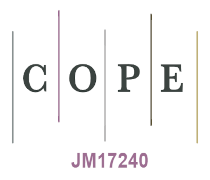Rola wsparcia społecznego w leczeniu cukrzycy u młodzieży
DOI:
https://doi.org/10.18778/1427-969X.15.03Słowa kluczowe:
diabetes mellitus type 1, metabolic control, self-control, social support, satisfaction with support, network supportAbstrakt
The article is a report of studies on the relationship between social support and the effectiveness of treatment for diabetes in youth. The aim of this study was to answer the question whether between patients with different treatment outcome differences in perceived social support. The study were 100-strong group of diabetics aged 16–18 years (50 girls and 50 boys), which has been assigned to groups of varying effectiveness of diabetes management. Adopted two criteria for allocation of subjects into groups: 1) the level of self-control of diabetes measured by the scale of „Treatment of Diabetes”(LC), 2) the degree of metabolic control measured by HbA1c. To measure the social support Sarason’s Social Support Questionnaire was used. Analysis of test results does not reveal significant differences in social support among patients with high and low self-control. In patients with varying degrees of metabolic control of diabetes patients with poor treatment outcome perceive less social support network (p < 0.05), but they are more satisfied with it (p < 0.01) than patients with good control of diabetes. In addition, the length of morbidity of diabetes is moderately, negatively correlated with the network of support and the degree of satisfaction with the aid received.
Bibliografia
Antonovsky A. (1995), Rozwiązanie tajemnicy zdrowia. Jak radzić sobie ze stresem i nie zachorować, Fundacja IPN, Warszawa.
Google Scholar
Cieślak R., Benight C. C. (2008), Wsparcie społeczne a wypalenie zawodowe – nowe perspektywy badań, [w:] Zdrowie i choroba. Problemy teorii, diagnozy i praktyki, red. J. Brzeziński, L. Cierpiałkowska, GWP, Gdańsk.
Google Scholar
Czech A., Tatoń J., Bernas M. (2000), Kompendium diabetologii. Rekomendacje dla lekarzy, Via Medica, Gdańsk.
Google Scholar
Davis C., Delamater A., Shaw K., La Greca A., Eidson M., Perez-Rodriguez J., Nemery R. (2001), Brief Report: Parenting Styles, Regimen Adherence and Glycaemic Control in 4- to 10-year-old children with Diabetes, „Journal of Pediatric Psychology”, 2, 123–129.
Google Scholar
DOI: https://doi.org/10.1093/jpepsy/26.2.123
Donnelly L. A., Morris A. D., Evans J. M. (2007), Adherence to Insulin and Its Association with Glycemic Control in Patients with Type 2 Diabetes, „Quarterly Journal of Medicine”, 100(6), 345–350.
Google Scholar
DOI: https://doi.org/10.1093/qjmed/hcm031
Glasgow R., Barrera M., Mc Cay H., Boles S. (1998), Social Support and Health Among Participants in an Internet-based Diabetes Support Program: A Multi-dimensional Investigation, „Diabetes”, 47, supplement 1, A326.
Google Scholar
Hanna K. M., Juarez B., Swenson-Lenss S., Guthrie D. (2003), Parent-adolescent Communication and Support for Diabetes Management as Reported by Adolescents with Type 1 Diabetes, „Issues in Comprehensive Pediatric Nursing”, 26, 145–158.
Google Scholar
DOI: https://doi.org/10.1080/01460860390223871
Heitzman C., Kaplan R. (1984), Interaction between Sex and Social Support in the Control of Type II Diabetes Mellitus, „Journal of Consulting and Clinical Psychology”, 52, 1087–1089.
Google Scholar
DOI: https://doi.org/10.1037/0022-006X.52.6.1087
Jarosz-Chrobot P., Otto-Buczkowsk a E. (1999), Epidemiologia cukrzycy zależnej od insuliny (IDDM), [w:] Cukrzyca wieku rozwojowego, red. E. Otto-Buczkowska, Wydawnictwo Medyczne Urban&Partner, Wrocław.
Google Scholar
Krapek K., King K., Warren S., George K., Caputo D., Mihelich K. (2004), Medication Adherence and Associated Hemoglobin A1c in Type 2 Diabetes, „The Annals of Pharmacotherapy”, 38(9), 1357–1362.
Google Scholar
DOI: https://doi.org/10.1345/aph.1D612
Kyngas H., Rissane m M. (2001), Support as a Crucial Predictor of Good Compliance of Adolescents with a Chronic Disease, „Journal of Clinical Nursing”, 10, 767–774.
Google Scholar
DOI: https://doi.org/10.1046/j.1365-2702.2001.00538.x
Olszewska A., Szewczyk L. (2005), Poczucie wsparcia społecznego u nastolatków z cukrzycą typu 1, „Endokrynologia Pediatryczna”, 4, 1(10).
Google Scholar
Pereira M. G., Berg-Cross L., Almeida P., Machado J. C. (2008), Impact of Family Environment and Support on Adherence, Metabolic Control, and Quality of Life in Adolescents with Diabetes, „International Journal of Behavioral Medicine”, 15, 187–193.
Google Scholar
DOI: https://doi.org/10.1080/10705500802222436
Rosilio M., Cotton J., Wieliczko M., Gendrault B., Carel J., Couvaras O. (1998), Factors Associated with Glycemic Control, „Diabetes Care”, 15, 1640–1657.
Google Scholar
Sarason I., Levine H., Basham R., Sarason B. (1983), Assesing social support: The Social Support Questionaire, „Journal of Consulting and Clinical Psychology”, 54, 540–551.
Google Scholar
DOI: https://doi.org/10.1037/t01151-000
Sęk H., Cieślak R. (2006), Wsparcie społeczne, stres i zdrowie, PWN, Warszawa.
Google Scholar
Sheridan C., Radmache r S. (1998), Psychologia zdrowia. Wyzwanie dla biomedycznego modelu zrowia, Instytut Psychologii Zdrowia PTP, Warszawa.
Google Scholar
Simonides-Ławecka A. (1995), Cukrzyca u dzieci, PZWL, Warszawa.
Google Scholar
Smoczkiewicz R. (1999), Psychologiczne aspekty cukrzycy dzieci i młodzieży, [w:] Cukrzyca wieku rozwojowego, red. E. Otto-Buczkowska, Wydawnictwo Medyczne Urban&Partner, Wrocław.
Google Scholar
Smykowska D. (2007), Instytucje wsparcia społecznego, Wydawnictwo Naukowe Wyższej Szkoły Informatyki, Łódź.
Google Scholar
Szymańska S. (2000), Osobowościowe uwarunkowania strategii radzenia sobie z cukrzycą typu 1, Uniwersytet Łódzki, Łódź [niepublikowana rozprawa doktorska].
Google Scholar
Tardy Ch. H. (1985), Social Support Measurement, „American Journal of Community Psychology”, 13(2), 187–202.
Google Scholar
DOI: https://doi.org/10.1007/BF00905728
Viklund G., Wikblad K. (2009), Teenagers’ Perceptions of Factors Affecting Decision-making Competence in the Management of Type 1 Diabetes, „Journal of Clinical Nursing”, 18, 3262–3270.
Google Scholar
DOI: https://doi.org/10.1111/j.1365-2702.2009.02963.x
Pobrania
Opublikowane
Jak cytować
Numer
Dział
Licencja

Utwór dostępny jest na licencji Creative Commons Uznanie autorstwa – Użycie niekomercyjne – Bez utworów zależnych 4.0 Międzynarodowe.








